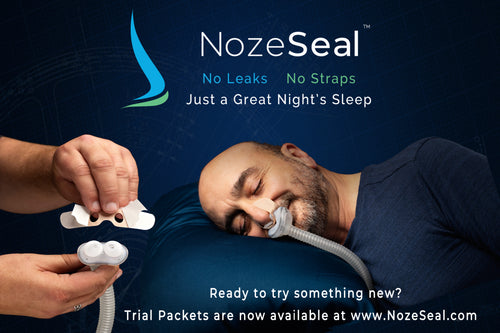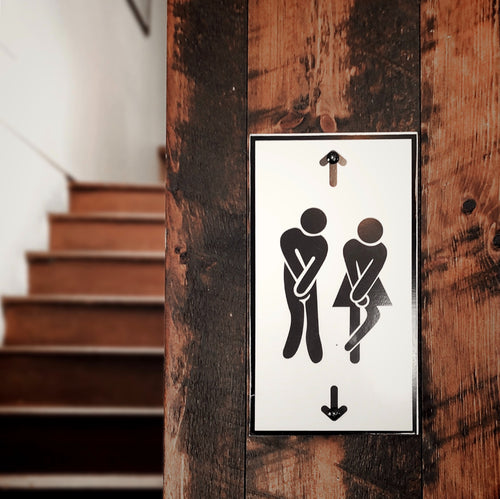
Could your snoring be a risk for stroke?
- on September 11, 2022
- Categories: Sleep & Health
Did you know that those who snore have increased blockages of arteries in the neck (carotid artery atherosclerosis) compared to non-snorers? Indeed, nearly seventy (70%) of those with carotid stenosis have obstructive sleep apnea (OSA). Such blockages in the carotid artery are a risk factor for stroke.
Treatment of OSA may reduce the risk of recurrent strokes.
Treatment of sleep apnea with CPAP may further improve:
|
Dementia Sudden cardiac death Cardiac arrhythmias Cardiac ischemia |
Maternal-fetal health Memory impairment Heartburn Nighttime urination |
You're doing your part to lead a healthy lifestyle. Let's optimize your efforts by helping you to get a great night's sleep.
The NozeSeal adhesive strip secures and seals your CPAP nasal pillows to the nose. No leaks. No straps. Just a great night's sleep.
References:
McDermott, Mollie, and Devin L. Brown. "Sleep apnea and stroke." Current opinion in neurology 33.1 (2020): 4-9.
Ehrhardt, Jens, et al. "Sleep apnea and asymptomatic carotid stenosis: a complex interaction." Chest 147.4 (2015): 1029-1036.
Sacco, Ralph L., et al. "Guidelines for prevention of stroke in patients with ischemic stroke or transient ischemic attack: a statement for healthcare professionals from the American Heart Association/American Stroke Association Council on Stroke: co-sponsored by the Council on Cardiovascular Radiology and Intervention: the American Academy of Neurology affirms the value of this guideline." Stroke 37.2 (2006): 577-617.






